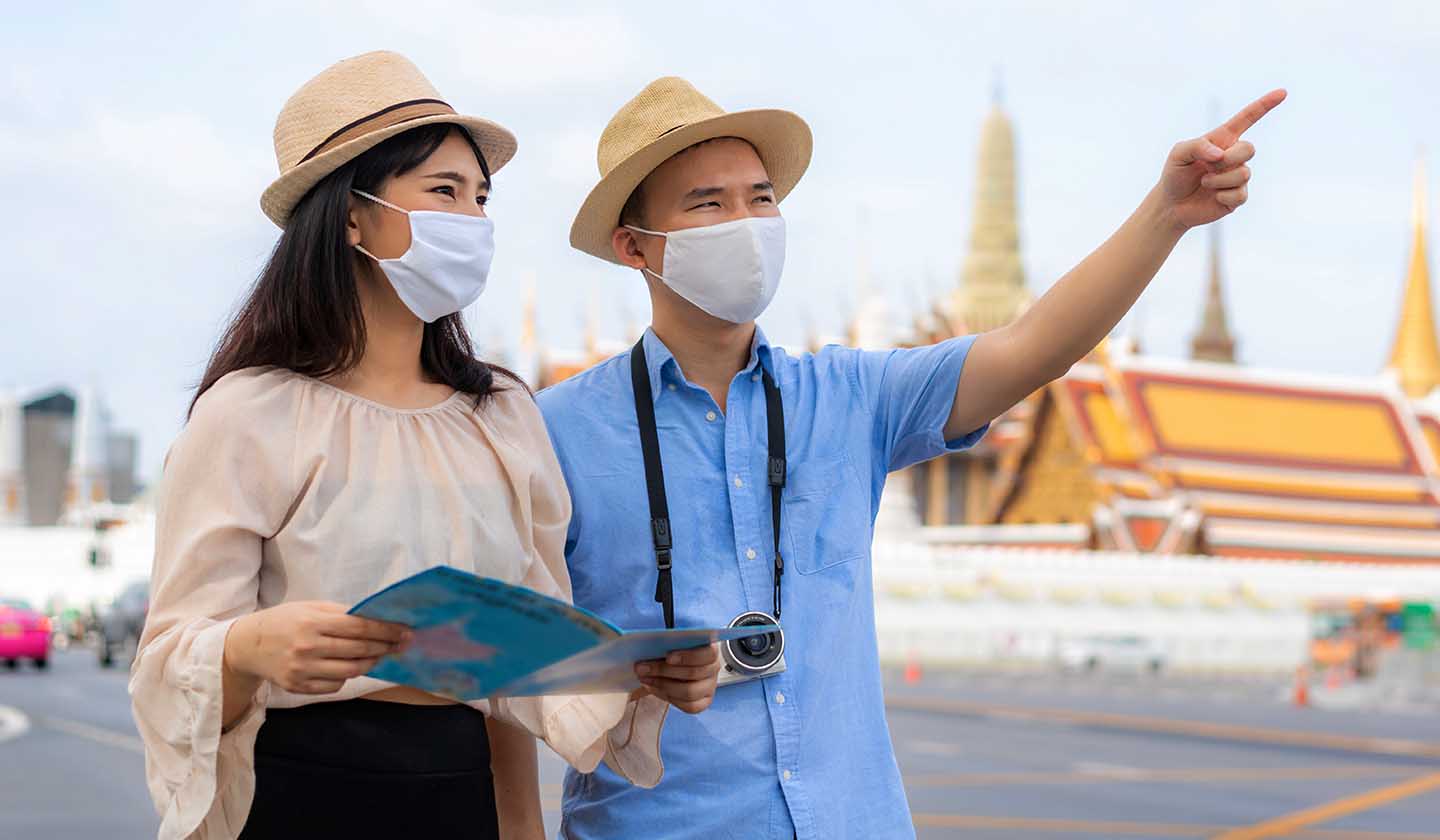Prevention
International destinations - Go, but go without worrying!

Travel is more and more frequent, but there are destinations that present some risks to our health. Therefore, it is important know which precautions one should take before travelling, during the stay and after returning.

Before travelling
International travel can change our health condition depending on the destination, time of the year, length of the stay and type of scheduled activities.
Sudden changes in altitude, humidity, and temperature, as well as the presence of infectious agents, hygienic and sanitary conditions and the individual characteristics of the traveller are factors to be considered. Malaria, yellow fever, cholera, Japanese encephalitis, typhoid, tetanus, hepatitis A or B, are some of the diseases that can be prevented. Therefore, before travelling, you should go to a travel medicine consultation, which can take place in hospitals or health care centres. Depending on the country or region you are travelling to, the most appropriate prophylactic measures will be advised.
The elderly, chronically ill patients, pregnant women, children, and babies should take extra care. If you are travelling to a country in the European Union (or Iceland, Liechtenstein, Norway, and Switzerland), get your European Health Insurance Card, in order to get medical assistance during your stay, if necessary.
Travelling safely requires adding a basic pharmacy kit to your luggage, that will cover possible existing health problems, as well as small day-to-day incidents. So, make sure to include:
- Regular medication in sufficient supplies, including cover for possible travel delays or lost luggage; these must be properly packed and preferably carried in hand luggage. Also, do not forget to take the medication prescription with you, as well as an indication, preferably in English, of the active substances, dosage, and pharmaceutical forms, and on how to take the medication;
- Medications prescribed at the travel medicine consultation and medications for pain, fever, colds, cough, diarrhoea, and nausea;
- Repellents and products to relieve insect bites;
- First aid kit.

During your stay
There are several risks to consider:
Heat, sun and humidity - In hot regions, you should drink plenty of fluids, eat foods rich in mineral salts (fruits/vegetables), wear light cotton clothing, avoid sun exposure during peak hours, apply high-level sunscreen, wear a hat and sunglasses.
Food and sanitary hygiene - To prevent the risk of diarrhoea and diseases, such as cholera due to ingestion of contaminated food or water, it is essential to: only drink bottled water, avoid drinking beverages with ice, only drink pasteurized milk, eat only well-cooked food, washed fruit and fruit peeled by you, avoid eating raw salads or food purchased from street vendors, wash your hands thoroughly after going to the toilet and before handling or eating any food.
Infections - Malaria, sometimes also known as paludism, is a common disease in most tropical destinations, transmitted by mosquito bites. Among the precautions to be taken, taking an antimalarial stands out, as well as the use of repellent and light-coloured clothes that protect most of the body, especially at dawn and dusk.
Sexual health - Sexually transmitted infections (STIs) are also a risk for travellers. Only hepatitis B and the human papilloma virus can be prevented with vaccination. Therefore, the best strategy to prevent the onset of an STI is to practice safe sex, meaning condoms are indispensable in any luggage.

After returning
The end of the trip does not mean the end of care. For example, malaria prophylaxis should continue until the end of the prescribed treatment, which varies depending on the antimalarial in question. In the weeks that follow your return, you should pay attention to any changes in your health. Symptoms, such as fever, persistent diarrhoea, vomiting, jaundice, alterations in the genitourinary system or dermatological diseases, should be evaluated by a doctor.
Sources
iSaúde
Farmácia Distribuição Magazine
Também lhe poderá interessar
Prevention and treatment
Got everything you need for the summer?
Prevention and treatment






